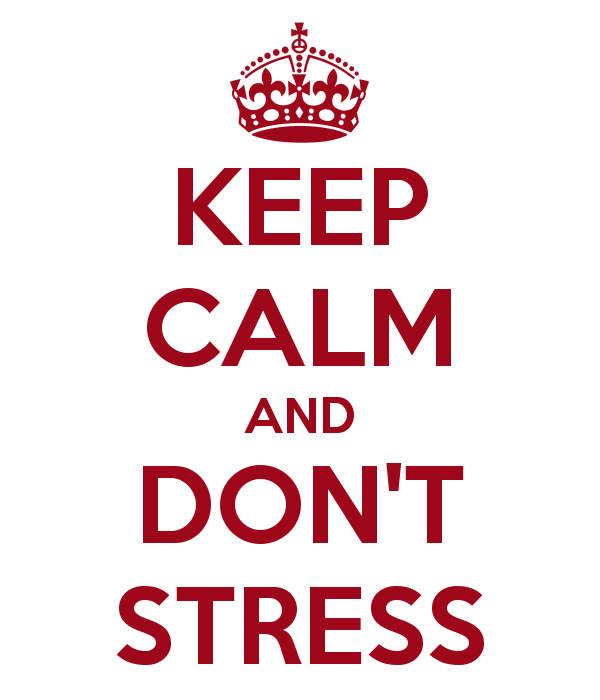To Stress or Rest?
Everyone handles stress from time to time. One needs it at an acceptable level to survive, but no one wants to experience it an an extreme level for a longer period of time since it can also be destructive.
In this article, I will dissect how stress is created and how does it affect human beings. This is needed for us to address and manage it effectively.
A STIMULI OR CONDITION
This is the trigger of stress. No one feels stress without a stimuli. Unfortunately, the world has an unendless supply of these conditions. It may exist anytime, anywhere or anyone. It could be minor or life-changing. In addition to that, the stimuli could exist constantly, intermittently or suddenly.
There is no way one can get rid of the stimuli but one can choose the places and situation they can experience. For example, one can prefer to work in a profession that demands less to a person. A person chooses who and when to marry. This could be a person who is rich, stable and famous. Some, on the contrary decide the opposite. Usually, this depends on the person's previous attempts and success in handling stress. The higher the frequency of good resolution of previous problems, the more courage a person has in taking risks and choosing the situation they are in.
PERCEPTION OF A CHALLENGE
It is all in the mind. A condition can be considered a problem when a person perceives he or she can not handle it. This means that existing coping mechanisms are insufficient to identify means for resolution. It is common for people to use the same coping mechanisms that are determined to be effective. The process of using these mechanisms are largely done unconsciously or involuntary.
In one instance, a pen could be perceived as a challenge. On the other hand, a break-up of a relationship may not present a challenge. These are few examples to show that it is not how big problems can be, but how difficult things can be as we perceive it. If a student loses a pen and finds no other replacement, but he badly needs it to write as he studies for an important exam; a pen could be seen as enormous stressor that could result to inevitable failure in an examination, as perceived by the person affected by the stimuli. On the other hand, a person may see an end of a relationship as nearly nothing, if he or she see other alternatives that could bring out the good effects and benefits the person gets, in spite of a loss.
ANXIETY
Anxiety is the manifestation of the level of difficulty a challenge brings to a person. This can be seen through physiological and psychological responses in a person. In terms of the bodily effects, this can be as simple as nervousness to as severe as pounding headache and increased susceptibility to infection due to lowered immunity. Moreover, emotions can fluctuate as a stress person easily gets irritated. This can also bring forth personality changes, impaired judgment and decision-making skills.
Anxiety response can also be felt according to magnitudes or levels. This can be mild, moderate, severe and panic level of anxiety. Mild anxiety is conducive for learning, as perceived challenge is constructive, rather than destructive. Moderate response affects how a person focuses. This the time that an anxious individual may ask help from someone to help understand the bredth of the problem, as the person becomes more narrow-minded. Severe anxiety on the other hand results to physiological manifestations that give the impression that a person tries to survive and endure the stress experience. Lastly, panic attacks are the most severe type of anxiety response when death could occur and personality disintegrates as the person may lose contact with reality.
COMPENSATION
Before anxiety response increases at an uncontrollable level, the individual may utilize physiological and psychological mechanisms to reduce anxiety's destructive effects. Physiologically, the body will attempt to make more energy available. This explains why a lot of people eat so much when they are confronted by stressful situations. Others may opt not to, but body systems will trigger functions to speed up metabolism and release energy from different storage areas, resulting to weight loss, palpitations and increased awareness. Furthermore, a person may make use of denial to ignore the existence of the problem. This is a self-preservation, a means of the person's psyche. Some people use diversionary techniques or simply to vent their negative feelings to someone or something that will ease the person's feeling of discomfort.
Stress response is cyclical if the compensation is not sufficient, then it creates another stimuli. If the problem exists for a long period of time, insufficiently compensated and addressed, an individual may perceive the condition no longer as a challenge. This may because the person was either used to the problem, or have now lost reality orientation unconciously as the person's ego attempts to shut down its awareness to minimize as possible the anxiety produced in the situation. This is when the person ends up with mental illness involving thought process and personality changes.
Thus, one can say that stress is a product of the mind. Our perception of our ability to cope and perception of our own problems greatly contributes to the magnitude of stress we feel. It is important that we truly rest, not just our body, but our mind as well.












Comments
Post a Comment